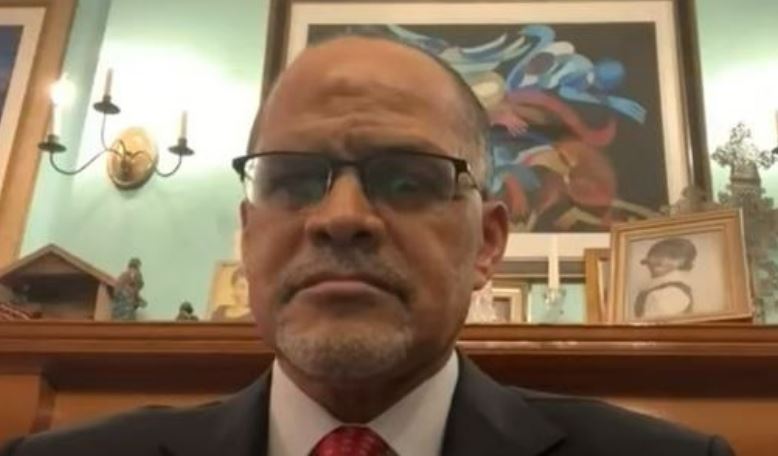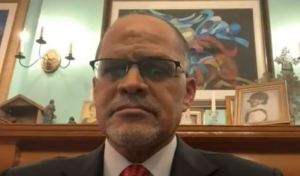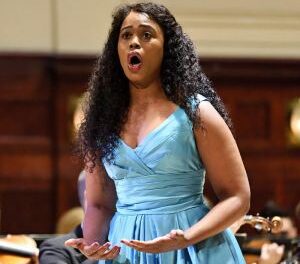
By Nadine Matthews
Special to the AFRO
Word in Black, a coalition of leading Black newspaper publishers including the AFRO’s own Publisher and CEO Frances “Toni” Murphy Draper, describes its mission as one that “amplifies the Black experience by reporting, collecting and sharing stories about real people.
Recently, in alignment with their mission, the coalition convened a virtual discussion of the state of education for Black students and teachers today.
“Teachers of Color In The Classroom: The State of Diversity in K-12 Education,” was hosted by Andrew Ramsammy, chief content & collaboration officer, Local Media Association and Word In Black, moderated by Elinor Tatum, publisher of the New York Amsterdam News. The discussion was followed by a state-of-education roundup by Aswad Walker, associate editor of the Houston Defender, and Tatum.
David Banks, the incoming Chancellor of the New York City public schools, the largest in the nation, was the featured guest. Banks is also the founder of the Eagle Academy For Young Men, a network of successful all-boys public schools.
“I lean into challenges, into spaces where others would say ‘why in the world would you do that?’” Banks replied when asked by Tatum about taking over in the middle of national political upheaval and a pandemic which caused a number of educational setbacks and spurred a mental health crisis among the nation’s students. “Crisis and challenge has never caused me to shy away. It’s part of what I’ve done throughout my whole career.”
Banks believes that there is a silver lining to the struggles of the last few years: young people. He contended that our youth are much more socially and politically aware, than not. “Some of these tragedies have raised the consciousness of our young people and should really be instructive.” Banks cautioned against having students totally consumed by politics, but did express a desire for the normalization of student civic awareness and participation. “I want to hear their voices expressed around the issues of the day. They should be engaged around the things that are relevant to their own lives.”
When the discussion turned to representation in the classroom, Banks informed the audience that, “All the research tells us how much better off young people of color are when they see teachers who look like them.” He went on to share that only 2% of the US teaching population are African-American men. “So if you’re a young man of color, it’s very likely you’ll never see a teacher who looks like you,” he began. “Identity development is important for a young person and if you never see anyone who looks like you, that’s problematic.”
Discussion then veered toward the issue of how to recruit and retain teachers of color, with Banks suggesting the need for a radical shift in the level of respect afforded teachers in the US. “For all teachers, we need to do a much better job of lifting them up, honoring, and celebrating them,” he stated.
In addition, Banks emphasized, much more proactive measures must be taken to attract teachers of color. “We should be going to universities around the country and going to HBCUs regularly, and state our case about why it’s important to have them come and be teachers in our schools.”

Of utmost importance is increasing the graduation rates. “You can’t become a teacher if you never graduated from high school and college,” he said.
Once ensconced in their positions, Banks said, teachers need to be retained through consistent, concerted engagement. “What’s important is who you connect those teachers with. You’ve gotta assign them mentors who are experienced teachers to help show them the ropes.” Ideally, suggested Banks, these mentors have similar lived experiences to the newer teachers.
With regard to students themselves, Banks stressed that significant investment must be made in early childhood education, with a wholesale reversal of the way that Reading is taught in school. “Over the last twenty-five years a lot of our kids have been taught ‘Balanced Literacy’ and it hasn’t worked for the majority of our children,” he explained.
“We’ve got to get back to the phonetic approach to the teaching of Reading.” Further, he pointed to third grade as the crucial milestone at which every child in school should know how to read. “If we don’t,” he cautioned, “we have to spend that much more money fighting an uphill battle. I consider reading the ultimate equity issue.”
Finally, in middle and high school, said Banks, the ideal experience is for students to get exposure to the businesses for which they could potentially work when they become adults. “I want kids to be exposed to corporations,” the 59- year-old educator stated firmly, “so they know what the power of possibility is for their lives. I want to see kids on fire to learn because they know the light at the end of the tunnel.”
Help us Continue to tell OUR Story and join the AFRO family as a member – subscribers are now members! Join here!
The post #WordinBlack: Incoming NYC schools chancellor talks to Black Press about his vision for teachers and students of color appeared first on AFRO American Newspapers .










